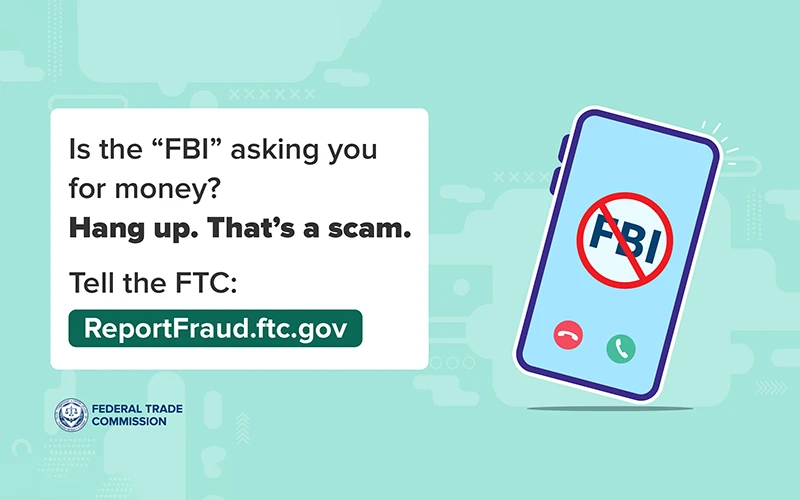From the Federal Trade Commission (FTC) —
By Gema de las Heras, Consumer Education Specialist —
Unwanted calls are annoying — but when a caller says they’re an FBI agent collecting on a legal judgment entered against you, it’s also scary. No matter how urgent and serious the call sounds, neither the judgment nor the agent are real. Like other impersonation scams, FBI imposters are after your money and personal information, and they might even threaten to arrest you unless you pay immediately. (Again: it’s not real.) Read on to learn to spot the scam.
Scammers will try to get you to act first and think later. If you get a call like this:
- Know that government agencies don’t call and demand money or personal information. Even if you owe money, real government representatives won’t call to threaten to arrest you, freeze your accounts, or take your property.
- Never pay anyone who tells you to pay with gift cards, cryptocurrency, or wire transfers. No government agency, including the FBI, demands payment that way. Anyone who does is a scammer. Always.
- Don’t trust caller ID. Scammers use technology to fake the number they call from. Never call back phone numbers from your caller ID or voicemails.
- Check with the FBI if you think the call or email is real. If you’re worried, contact one of the FBI field offices to check out the call.
Do you suspect an impersonation scam? Report it at ReportFraud.ftc.gov. Even if you didn’t lose money, your information helps investigators working to stop these scams.
Read more about the FTC’s rulemaking proposal to combat impersonation scams.
Contact Pinnacle CPA Advisory Group
If you need help with your personal or business taxes, contact the experts at Pinnacle CPA Advisory Group. Reach us by calling our office at (614) 942-1990, sending email to info@cpaagi.com, or just fill out the Contact form on this website at cpaagi.com/contact.

